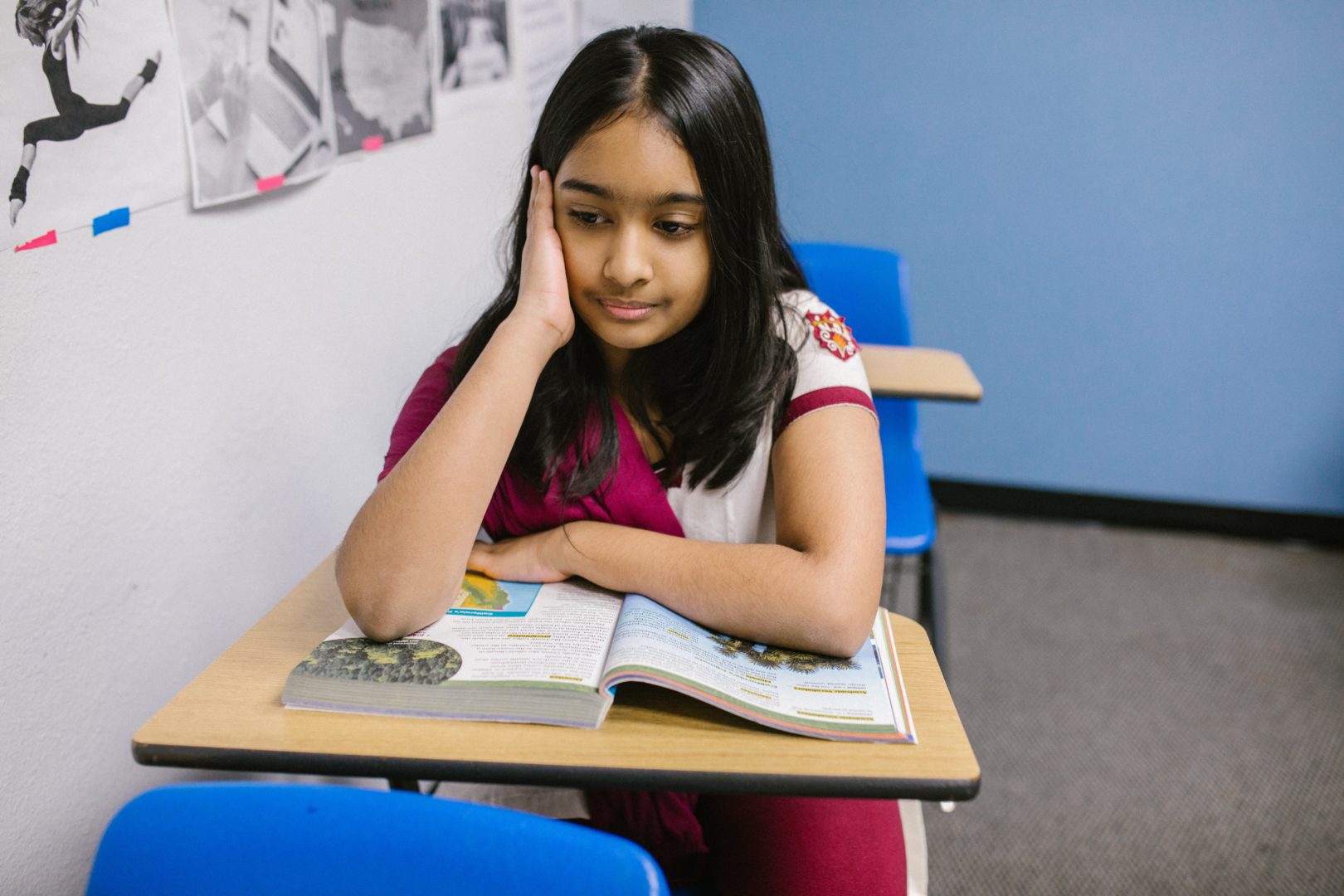We deeply believe that children and adults have the capacity to lead healthy and fulfilling lives after loss. But experiencing the death of a loved one is also a significant stressor and will, of course, affect children in a number of ways. It isn’t always easy to see how grief is impacting a child, and they might not have the language themselves to verbally acknowledge the ways they are struggling. Below are a few indicators that it might be a good idea to provide your child with additional sources of support such as a therapist, guidance counselor, or peer-based grief group.
Social isolation / Withdrawing from preferred activities
Have you noticed your child spending more time alone in their room? Have they stopped going to soccer practice or dance? When kids become socially isolated or withdrawn, it is possible that they are feeling a greater sense of loneliness or disconnection from their peers. When a child has had a significant death loss, they are often acutely aware that they are the only person in their classroom or group of friends that have had this type of experience. Social isolation can also be a symptom of depression and is something that we want to be aware of and monitor.
Mood shift
Have you noticed a shift in your child’s mood? Has your child had less patience with siblings, homework or chores? A shorter fuse? A steady stream of tears? It is extremely important to notice and tune in to how your child seems to be feeling. We know that throughout a child’s development, it is normal for children to feel sad, irritated, or down from time to time. However, if there seems to be a consistently low mood or chronic irritability, we want to pay close attention. While an irritable or angry mood might seem like a bad attitude or disrespect, this might be representative that a child is struggling with expressing their thoughts and feelings in an adaptive way. While grief and depression are different experiences, the emotional distress of loss coupled with environmental changes or a feeling of social disconnection can certainly contribute to depression presenting concurrently with grief.
Behavioral changes
Has your child been struggling with nightmares? Difficulty falling asleep each night? Stopped eating the foods they love or eating significantly more or less than usual? Eating and sleeping are two key indicators of a child’s overall functioning. It is possible that there is increased anxiety or worry that might be intruding on your child’s sleep, or impacting their appetite. In cases of more extreme behaviors, such as school refusal, getting into fights, substance use, or self-injurious behaviors, we recommend consulting a professional immediately.
So what do I do?
If you are noticing any of the behaviors above, you are already on the right track by being attuned to your child and noticing what is going on in their life. Seeking professional support will be helpful in assessing the picture further in order to come up with a plan that will best meet the needs of your family.
Speaking with your child’s school counselor can be a helpful first step. In addition to potentially offering more therapeutic support in school, they can help identify resources in your local community.
It can also be incredibly useful for children to connect with other kids their age who have had a shared experience. A peer grief group (or camp!) can provide this type of environment where kids feel socially connected, as it is a structured place where children can talk, play, and engage in activities that can help them feel a sense of community again.
The bottom line here is to recognize that sometimes providing care for your child means taking a team approach. This team will look different for every family, but simply by reaching out for support and guidance, you are showing your child that you see them, see their emotions, and that you care.
 Jenna Wolfson is a licensed clinical social worker in New York City. She is the Clinical Director of the Mid-Atlantic and New England regions of Experience Camps for Grieving Children, an organization she has been involved with since 2012. Jenna is also the Senior Social Worker and a clinical supervisor at the New York Presbyterian Weill Cornell Medical Center’s Adolescent Partial Hospitalization Program, where she works with teenagers struggling with significant mental health concerns as an individual, group and family therapist. She also has a private practice in Manhattan, working primarily with grieving children, teens and their families.
Jenna Wolfson is a licensed clinical social worker in New York City. She is the Clinical Director of the Mid-Atlantic and New England regions of Experience Camps for Grieving Children, an organization she has been involved with since 2012. Jenna is also the Senior Social Worker and a clinical supervisor at the New York Presbyterian Weill Cornell Medical Center’s Adolescent Partial Hospitalization Program, where she works with teenagers struggling with significant mental health concerns as an individual, group and family therapist. She also has a private practice in Manhattan, working primarily with grieving children, teens and their families.
 Dr. Dan Wolfson is a licensed clinical psychologist specializing in the field of grief and loss. He is the Mid-Atlantic region Clinical Director of Experience Camps for Grieving Children, and a supervising psychologist in private practice in New York City. Dr. Wolfson completed his postdoctoral fellowship at Columbia University’s Center for Complicated Grief, where he developed expertise in the highly effective modality of Complicated Grief Treatment (CGT), while also conducting research and providing bereavement training to mental health professionals. Over the past decade, he has developed and led therapeutic grief groups in a range of settings for children, college students, and adults. Dr. Wolfson is also an advisory board member for the grief resource company Lantern and a featured author and advisor to the website Modern Loss, and his work on grief and loss has been featured in local and national media outlets including ABC, NBC, The Huffington Post, Vice, and more.
Dr. Dan Wolfson is a licensed clinical psychologist specializing in the field of grief and loss. He is the Mid-Atlantic region Clinical Director of Experience Camps for Grieving Children, and a supervising psychologist in private practice in New York City. Dr. Wolfson completed his postdoctoral fellowship at Columbia University’s Center for Complicated Grief, where he developed expertise in the highly effective modality of Complicated Grief Treatment (CGT), while also conducting research and providing bereavement training to mental health professionals. Over the past decade, he has developed and led therapeutic grief groups in a range of settings for children, college students, and adults. Dr. Wolfson is also an advisory board member for the grief resource company Lantern and a featured author and advisor to the website Modern Loss, and his work on grief and loss has been featured in local and national media outlets including ABC, NBC, The Huffington Post, Vice, and more.
